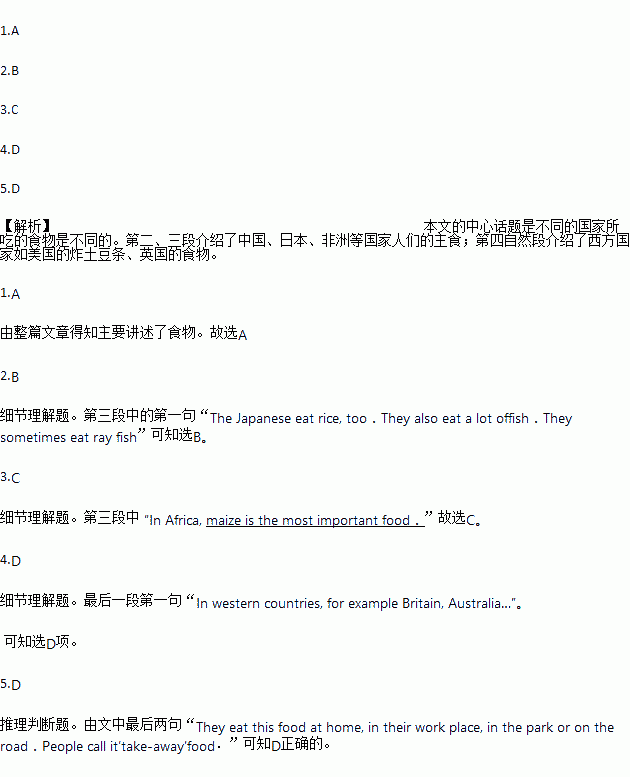题目内容
People eat different things in different parts of the world.
In south China we eat rice every day. Sometimes we eat it two or three times a day, for breakfast, lunch and supper. We usually eat it with fish, meat and vegetable.
The Japanese eat rice, too. They also eat a lot of fish. They sometimes eat raw(生的)fish. In Africa, maize(玉米)is the most important food. People there make maize into flour(面粉).From this flour they make different kinds of bread and cakes.
In western(西方的)countries such as Britain, Australia and the U.S.A, the most important food is bread or potatoes. People there usually make their bread from wheat flour. They cook the potatoes in different ways. In England the most popular food is fish and chips. Sometimes people cook this food at home, but usually they buy it at the shop. They eat this food at home, in their work place, in the park or on the road. People call it "take-away" food.
1.This passage is about ______.
A. food B. drink
C. clothes D. ways of life
2.Who sometimes eat fish when it isn't cooked?
A. People in China B. People in Japan
C. People in Africa D. People in Britain
3.The most important food for African people is ______.
A. rice B. fish
C. Maize D. vegetable
4.Which of the following countries is called " a western country"?
A. One of the countries in Africa B. Japan
C. China D. Australia
5.People eat "take-away" food ______.
A. at home B. on their way to school
C. in their offices D. A、B and C
 阅读快车系列答案
阅读快车系列答案
